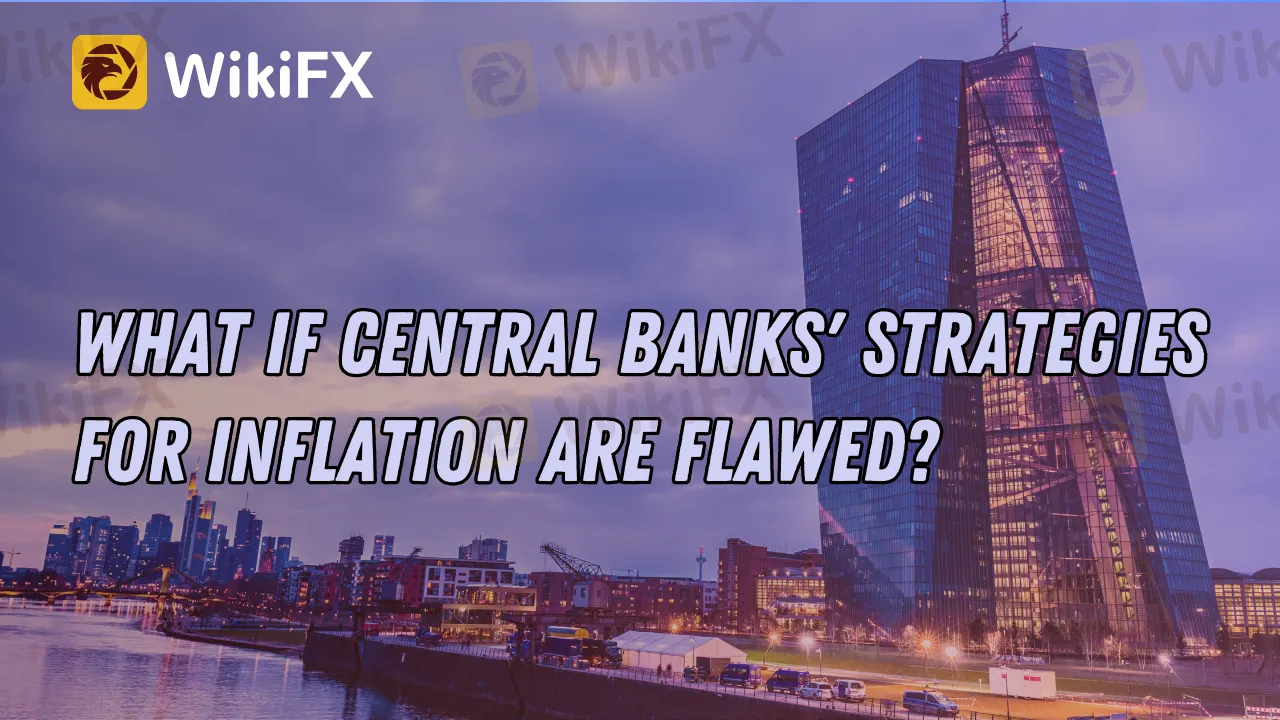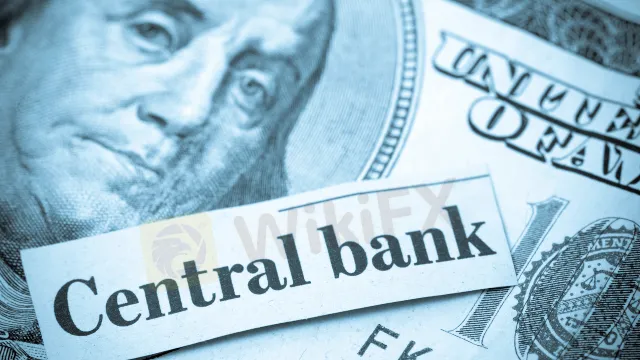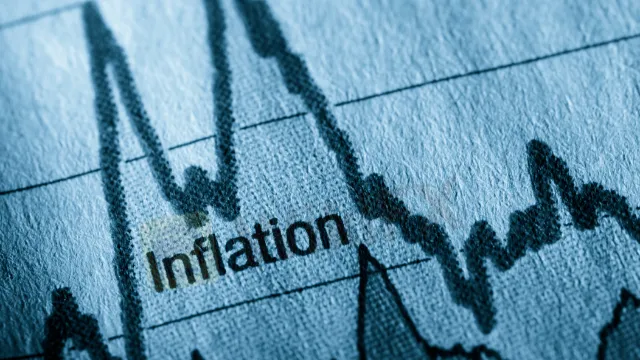简体中文
繁體中文
English
Pусский
日本語
ภาษาไทย
Tiếng Việt
Bahasa Indonesia
Español
हिन्दी
Filippiiniläinen
Français
Deutsch
Português
Türkçe
한국어
العربية
What If Central Banks' Strategies for Inflation Are Flawed?
Abstract:Explore the potential flaws in central banks' inflation strategies and how misunderstanding the past could lead to negative economic impacts. This article delves into the history and future of inflation, questioning the efficacy of current methods and suggesting alternative considerations for economic prosperity.

In our life journey, we encounter countless forks on the road — pivotal moments where we must make a decision. These choices can take us on unexpected paths, shaping our lives in unforeseen ways. Imagine, though, the weight of these decisions when they impact entire nations. A potential mistake or misinterpretation by those in charge could have far-reaching consequences. This is the predicament facing our economic decision-makers as they grapple with the enigma of inflation and their role as central banks.
Wrestling with the Inflation Target
In the current economic climate, central banks worldwide are resolute that inflation must be maneuvered back within the 2 to 3 percent range. They plan to achieve this by escalating interest rates — a move that could inadvertently cause hardship for a section of the populace. This method harkens back to the late 80s and early 90s when inflation spiraled out of control. But what if this solution is based on a faulty understanding of the past?
There's a possibility that a confluence of factors, rather than just the actions of central banks, tamed the inflation beast back in the 1990s. Furthermore, what if the subsequent 30-year lull in consumer price increases was simply an anomaly? If that's the case, the current 2 to 3 percent inflation target may be a white whale — an unachievable goal that leads to turmoil as we desperately try to attain it.
An Examination of Central Banks' Track Record
The world's central banks, tasked with steering our economic ship, have often been found wanting. Despite growing evidence, they were blindsided by the Global Financial Crisis. As institutions like the International Monetary Fund exacerbated the situation by insisting struggling economies cut spending, the central banks idly watched, transforming a crisis into a catastrophe.

Subsequently, they flooded global markets with inexpensive money, a move that turned 5,000 years of financial history on its head. Interest rates plummeted below zero, a trend that only accelerated during the pandemic. The end result? An asset price boom, particularly noticeable in the real estate sector.
Central Banks and the Inflation Misunderstanding
Despite their checkered past, we still entrust these central banks with guiding us back to a pre-pandemic world of low inflation. But as Jerome Powell, US Federal Reserve Chief, admitted, “I think we now understand better how little we understand about inflation.” This confession raises a crucial question: Are we entrusting our economic future to those navigating blind?
Historically, it is widely believed that central banks saved the world from rampant inflation in the 1990s. This narrative was born out of academic discussions post-World War II, with the pendulum swinging from Keynesian economics — government control over the economy via spending and taxation — to the Chicago School of Economics led by Milton Friedman.
The Illusion of the Inflation Solution
In their approach, governments were to step aside and let free markets reign, with central banks controlling the economy. This philosophy seemed to be validated when inflation was tamed in the 1990s amidst sky-high market interest rates and a global recession. Central banks worldwide adopted the idea of maintaining a small pool of unemployment to keep consumer prices and wage growth under control — a concept known as the Non-Accelerating Inflation Rate of Unemployment (NAIRU).

However, this paints an incomplete picture. Central banks, while instrumental, were merely one part of the equation during the disappearance of global inflation. Other significant shifts, such as China's rise as the world's factory and the move towards globalization, played pivotal roles in this transformation.
The Global Inflation Landscape
Recent economic dynamics present a daunting picture. Nations from Albania to Zambia are jacking up interest rates at an alarming pace. The global forces that once helped depress consumer prices are no longer at work — in fact, they're moving in the opposite direction.
We're witnessing a shift from globalization to regional confrontation and rising nationalism. The pandemic has exposed the fragility of our global supply chains, leading to a resurgence in local manufacturing, which will inevitably result in higher costs and boosted inflation.
Furthermore, China's transformation, alongside the looming costs of global warming and the urgent move towards a low-emissions world, paints a bleak picture of inflation.
The Future of Central Banks and Inflation
As we stand on the precipice of these global changes, it's crucial that central banks recognize these alternate forces at play. Blindly increasing the NAIRU to hit their inflation targets could lead to a future we dread. It's a path we must avoid to prevent a collective “what if?” moment a decade from now.
For more in-depth news and updates on this topic and many others, download the WikiFX App on your smartphone: https://www.wikifx.com/en/download.html

Disclaimer:
The views in this article only represent the author's personal views, and do not constitute investment advice on this platform. This platform does not guarantee the accuracy, completeness and timeliness of the information in the article, and will not be liable for any loss caused by the use of or reliance on the information in the article.
Read more

Many Social Media 'Investment Gurus' Are Scammers Preying on Malaysian Traders
Social media platforms have become breeding grounds for scammers posing as investment gurus, exploiting the growing interest in forex and cryptocurrency trading among Malaysians. Fraudulent "financial experts" often create the illusion of legitimacy by offering enticing stock analyses and promises of high returns.

Arumpro Capital Ltd Faces Regulatory Setbacks as CySEC Withdraws CIF Licence
The Cyprus Securities and Exchange Commission (CySEC) has officially withdrawn the Cyprus Investment Firm (CIF) licence of Arumpro Capital Ltd. The decision was finalised during a CySEC meeting on 11 November 2024, marking another chapter in the firm's ongoing regulatory challenges.

Webull Expands Trading Services to Japan via TradingView
Webull launches in Japan, offering low-cost trading for U.S. and Japanese securities via TradingView. Start trading with investments as low as $5.

Countdown to WikiEXPO Dubai 2024 — “Seeing Diversity, Trading Safely”
With the booming development of the global Fintech industry, WikiEXPO Dubai 2024, hosted by WikiGlobal and co-organized by WikiFX, will officially kick off on November 27, themed “Seeing Diversity, Trading Safely.” This event will bring together global elites to explore the future of Fintech.
WikiFX Broker
Latest News
Tokyo Police Arrest 4 for Unregistered FX Trading Scheme
BSP Shuts Down Uno Forex Over Serious AML Violations
ACY Securities Expands Global Footprint with South Africa Acquisition
Rupee gains against Euro
WikiEXPO Global Expert Interview: The Future of Financial Regulation and Compliance
DFSA Warns of Fake Loan Approval Scam Using Its Logo
Consob Sounds Alarm: WhatsApp & Telegram Users Vulnerable to Investment Scams
CySEC Revokes UFX Broker Licence as Reliantco Halts Global Operations
GCash, Government to Launch GBonds for Easy Investments
Bitcoin ETF Options Get Closer to Reality with CFTC Clarification
Currency Calculator


